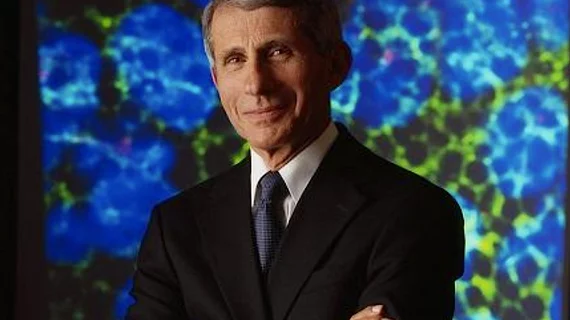Fauci stepping down from health leadership roles
Anthony S. Fauci, MD, is stepping down from his roles as director of the National Institute of Allergy and Infectious Diseases (NIAID) and chief of the NIAID Laboratory of Immunoregulation, as well as chief medical advisor to President Joe Biden.
According to Fauci, he is leaving his leadership roles in December “to pursue the next chapter of my career,” he wrote in a post Aug. 22.
Fauci became a well-known household name in the U.S. over the past few years as he frequently fronted the media campaign to direct Americans how to safely navigate the COVID-19 pandemic and update the nation on the status of pandemic. As one of the faces of the U.S. response to the COVID-19 pandemic and the top infectious disease expert in the nation, Fauci came under scrutiny many times since 2020, including directly from former President Donal Trump, who disparaged Fauci in and out of office. Fauci also faced death threats that forced him to add security for himself and his family in 2020.
Fauci, 81, has been director of NIAID for 38 years, beginning during the Reagan administration and serving under seven presidents. Throughout his career, Fauci has tackled numerous infectious disease threats, including HIV/AIDS, West Nile virus, the anthrax attacks, pandemic influenza, various bird influenza threats, Ebola and Zika, among others.
Despite leaving his leadership positions, Fauci said he is not retiring and will use his institutional knowledge “to inspire and mentor the next generation of scientific leaders as they help prepare the world to face future infectious disease threats.”
“Over the coming months, I will continue to put my full effort, passion and commitment into my current responsibilities, as well as help prepare the Institute for a leadership transition,” Fauci wrote. [The National Institutes of Health (NIH)] is served by some of the most talented scientists in the world, and I have no doubt that I am leaving this work in very capable hands.”
NIAID is one of the 27 Institutes and Centers of NIH.

